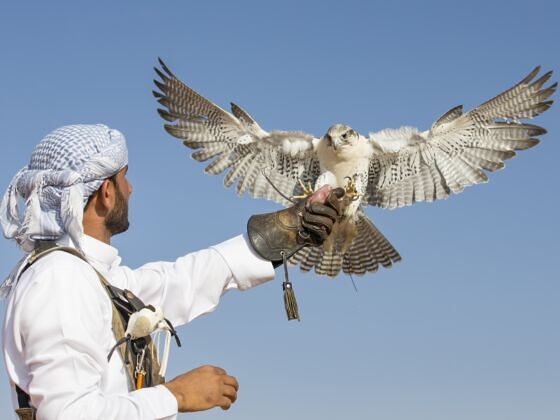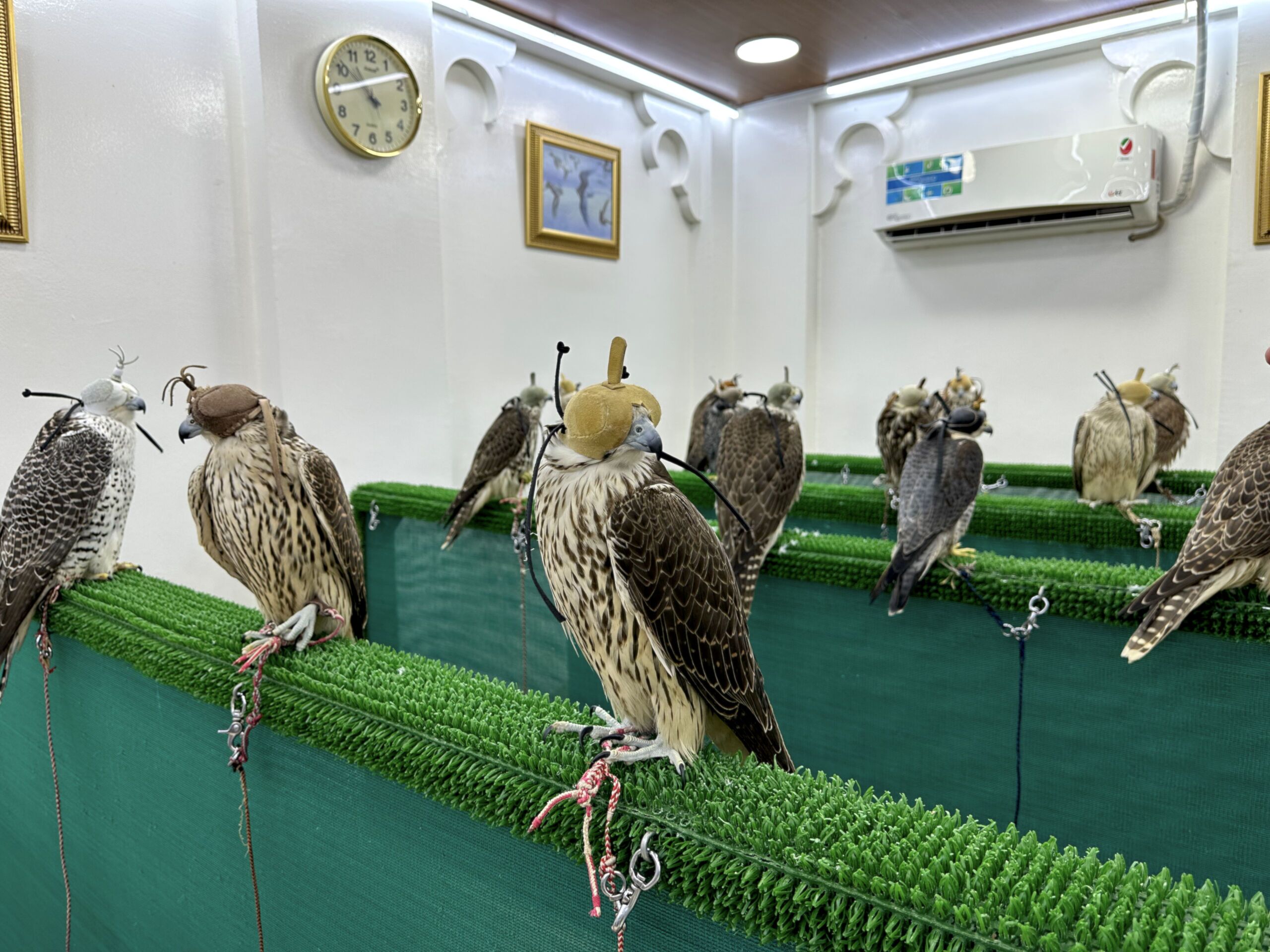Dubai is a thoroughly modern city, with world-class hotels and expansive luxury shopping malls that draw tourists from around the world. But within that is old Dubai, where the tradition, history, and culture of the nomadic Bedouins who have long lived in the deserts of the Middle East lives on. Falconry was a central part of life for the latter, and the birds helped find and hunt food. Today, the past and future of falconry can still be experienced by venturing out of Dubai proper.

Dubai’s Modern Falconry Experience Is a Bridge Between the Present and Bedouin Past
Peregrine falcons are called shaheen in Arabic, which is a Persian word that means “king of birds” or “king of sky.” In the new No Fixed Address podcast, travel host Michael Motamedi spoke with falconer Hendri Du Toit in Dubai’s Lahbab Desert.
During the interview, a larger female peregrine falcon, Nova, sat behind Motamedi and Du Toit while a smaller male, Ziggy, took center stage with his eye mask off to take it all in and stare down the humans as they spoke. Eye masks are an important part of falconry culture, and in Arabic those masks are called a burka, like the face coverings traditionally worn by women.
“If you close the eyes of a falcon, it’s just completely calm,” Du Toit says, adding that humans and birds have the opposite reactions when their eyes are covered. “You might be familiar with the English term out of sight, out of mind. That originates from falconry. If you close the eyes, you switch the bird down. It’s like an off button.”
The masks are only kept on for short periods of the day for things like transporting the birds or when they’re in a busy environment.
“Traditionally, this was used by the Bedouins as well,” Du Toit says, explaining that the burkha would keep the falcons from taking off to hunt small birds that can’t feed a falcon and the hunter’s family. The eyes are instead kept covered until a larger animal is spotted that the owner wants to hunt with the falcon.

Photo: Michael Motamedi
Falconry techniques from thousands of years ago are still used today, though there’s no shortage of modern improvements. The burkhas, for one, have evolved for style and comfort. Small GPS trackers that look like a little backpack are now put on the falcons that connect to an app (Marshall Radio Telemetry, lovingly nicknamed “Find My Falcon”) so it’s easier for owners to keep track of the birds in flight — including altitude, distance, and speed. Traditionally, falcons were fed, trained, and kept in shape by swinging food around on a long rope. Today, remote-controlled drones pull food through the air for the falcon to hunt to keep them fit and healthy.
Hunting wild animals was banned in the UAE in the 1970s. Falconry traditions and culture, however, live on. In addition to demonstrations that people like Du Toit do through falconry experience companies in Dubai, younger Emiratis are also passionate about falcon racing as a sport. It’s not an easy task.
“If you want to work with animals, you need to have a passion for animals,” Du Toit says. “They don’t understand the concept of off days or public holidays and things like that. They don’t understand the eight hour working day.”
Listen to the full interview on Spotify or Apple Podcasts.